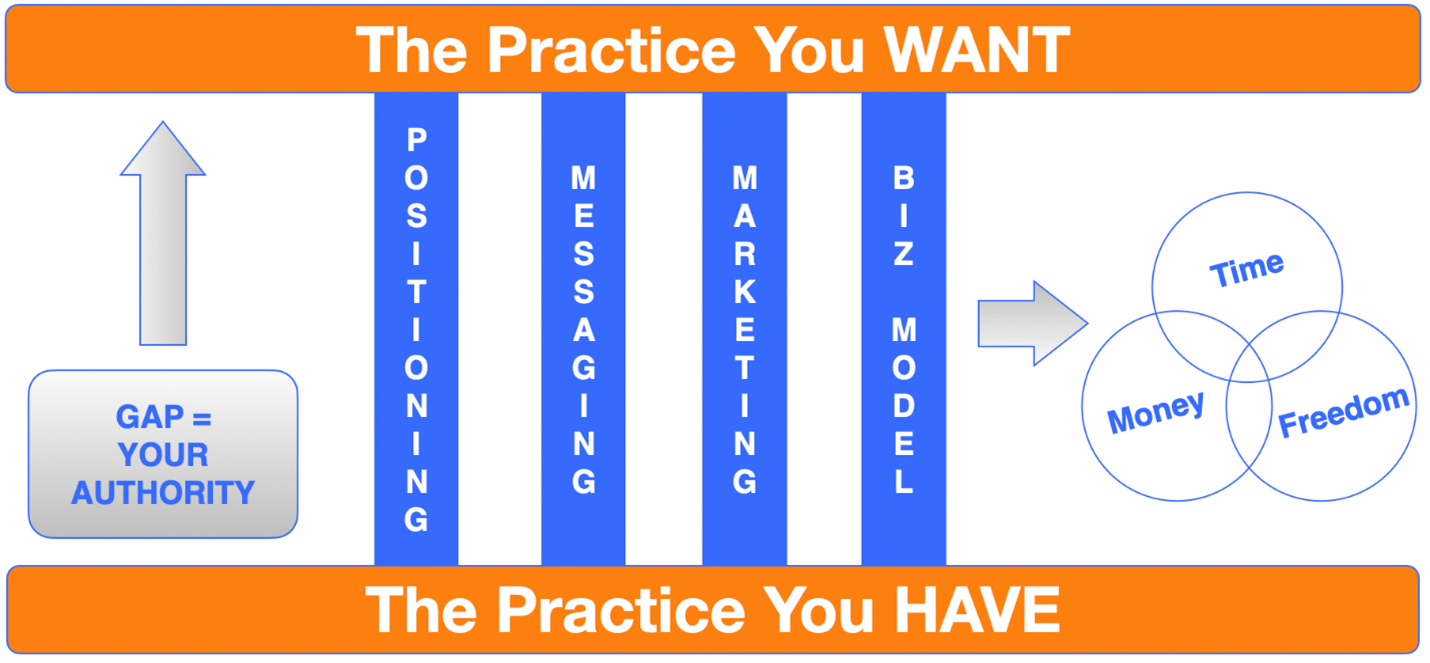How to Excel at BVFLS Practice Development
The Four Pillar Framework
Rod Burkert has been spreading the gospel about BVFLS practice development since 2013. In this article, he discusses a framework that he has developed and can be used to close the gap between the practice you have and the practice you want.
The people I talk to all seem to have slightly different ideas about practice development. Here is one definition from a Forbes article that I like:
“Business development is the creation of long-term value for an organization from customers, markets, and relationships.”
A good definition, especially at the level of a large firm. But how do you execute on it? How do you excel at it? How do you turn the practice you have into the practice you want?
I have been spreading the gospel about BVFLS practice development since 2013. I have a framework that can be used to close the gap between the practice you have and the practice you want. Here it is:
Four Pillars of BVFLS Practice Development™
Fundamental Premise of this Framework
To turn the practice you have into the practice you want, consider this:
Understand exactly what your audience of leads, prospects, clients, and referral sources are going through. Then make sure you are in front of them when they need you and are ready to buy. Because it’s not about you, it’s about them.
The Gap
I am going to start with the gap in my framework because once you understand what creates the gap you will understand how the pillars close the gap.
The gap between the practice you have and the practice you want is … authority.
Authority is your competitive advantage. It stems from:
- Having specialized knowledge and advancing your unique perspective of it.
- Being known for that expertise and getting recognized for it.
Think of Damodaran, Fannon, Grabowski, Hitcher, Mercer, Pratt, Trugman, and other titans in our profession. They have authority.
How did they get it? Two ways:
- They created the space for their authority to exist by specializing.
- They used a combination of tactics to communicate their authority.
The Four Pillars
The successful BVFLS colleagues I see work these four pillars.
#1. Marketing is Where You Show Up. You never know when a buyer of your professional services will need you. Thus, you need to be present in the various channels where your audience engages—in person and online. That means speaking and writing, perhaps even videos or podcasts. And you can’t show up when you have the time; marketing that works is done consistently and persistently.
#2. Messaging is What Makes You Different. You work in a crowded marketplace of professionals. Why should your audience pick you? Standing out has little to do with being “right” or “good” or following the rules. It has much more to do with getting noticed and building a lasting, memorable reputation by accentuating what’s different about you. And it isn’t enough to say you’re different; you must be different.
#3. Positioning is Who You Serve. You can’t be everything to everyone; it would be exhausting. You must serve one specific audience (or two). Go narrow and deep on a practice area or industry niche that you enjoy working in. Be so good at it that people can’t ignore you. Eventually, it will sink in that you can do what you say you can do successfully because you are the expert.
#4. Business Model is How You Generate Revenue. While 1:1 client service is certainly the cornerstone of our practices, it is not the holy grail because it does not scale. Financially successful entrepreneurs don’t sell their time. Rather they create, package, and sell their intellectual property—things like apps, books, models, newsletters, templates, toolkits, and webinars—in a 1:many environment.
So, What
Together, the four pillars will make your audience aware of you. The pillars will help your audience understand what you do and why you are different from your competition. The pillars will get your audience over the twin hurdles of respecting your expertise and trusting that you have their best interests in mind.
So that when someone in your audience finally has an interest in what you do (and they can buy from you, and they are ready to engage you), well, there you are in all your glory. Because my framework ultimately answers your buyer’s most important question: What do I get by hiring you?
In Real Life
At the end of the day, you want your practice to work for you. You want your practice to provide the time, money, and freedom so that you can create the experiences that matter most to you and your family. Practice development is the means, not the goal.
Turn your considerable valuation skills inward towards your own practice. As a valuation specialist, how would you assess your practice along the lines of my framework? What shortcomings do you see in your clients’ business models that you don’t recognize in your own?
Reading that Can Help
How Clients Buy: A Practical Guide to Business Development for Consulting and Professional Services by Tom McMakin and Doug Fletcher.
I help BVFLS professionals turn the practices they have into the practices they want—by focusing on strategies and tactics to help them better market, sell, and deliver their services—with an assist from AI. If you want some help with that, e-mail me at rod@rodburkert.com.











